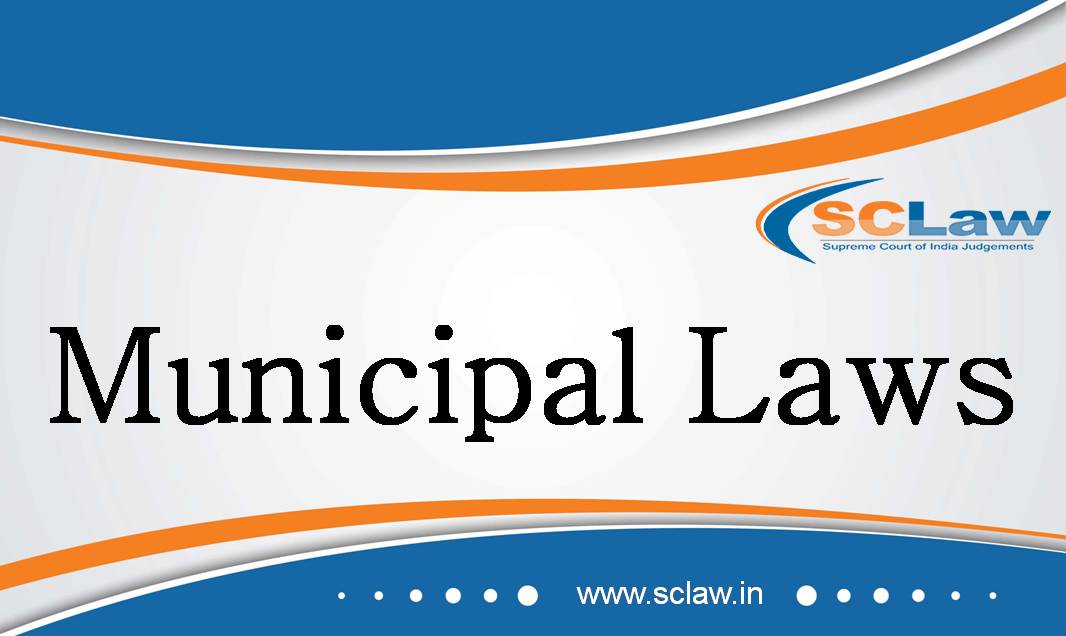Maharashtra Regional and Town Planning Act, 1966 – Section 37(1) and 154 – Demand of premium – Letter of Intent – In this case it is to be noted that the Letter of Intent was valid for a period of three months only – If, for any reason, delay is occurred in obtaining clearance from the Coastal Zone Management Authority, nothing prevented the appellants to make appropriate representation so as to keep the Letter of Intent alive. Appeal dismissed
SUPREME COURT OF INDIA DIVISION BENCH UTTAR BHARTIYA RAJAK SAMAJ PANCHAYAT BANGANGA RAJAK SAMAJ CO-OPERATIVE HOUSING SOCIETY (PROPOSED) AND ANOTHER — Appellant Vs. STATE OF MAHARASHTRA THROUGH SECRETARY AND OTHERS…
Section 92 CPC Procedure Not Applicable In Suit By A Trust: SC
Section 92 CPC Procedure Not Applicable In Suit By A Trust: SC [Read Judgment] LIVELAW NEWS NETWORK 31 Jan 2020 7:26 PM The Supreme Court has observed that the procedure…
Unequivocal Statements Made By Counsel Will Be Binding On Clients: SC
Unequivocal Statements Made By Counsel Will Be Binding On Clients: SC [Read Judgment] LIVELAW NEWS NETWORK 1 Feb 2020 11:45 AM The Supreme Court has observed that unequivocal statements made…
Cheating – Quashing of proceedings – There are no such specific allegations against the appellants being Managing Director or the Director of the company respectively – It is required to be noted that though the FIR was filed in the year 2000 and the charge-sheet was submitted/filed as far back as on 28.5.2004, the appellants were served with the summons only in the year 2017, i.e., after a period of approximately 13 years from the date of filing the charge-sheet. QUASHED
SUPREME COURT OF INDIA DIVISION BENCH SUSHIL SETHI AND ANOTHER — Appellant Vs. THE STATE OF ARUNACHAL PRADESH AND OTHERS — Respondent ( Before : Ashok Bhushan and M. R.…
Magistrate While Holding Inquiry U/s 202 CrPC Required To Take A Broad View And a Prima Facie Case: SC HELD criminal proceedings initiated are an abuse of process of law or the Court or not and/or whether the dispute is purely of civil nature or not and/or whether the civil dispute is tried to be given a colour of criminal dispute or not.
Magistrate While Holding Inquiry U/s 202 CrPC Required To Take A Broad View And a Prima Facie Case: SC [Read Judgment] LIVELAW NEWS NETWORK 31 Jan 2020 9:28 PM…
Bombay Municipal Corporation Act, 1888 – Section 351 – Maharashtra Slum Areas (Improvement, Clearance and Redevelopment) Act, 1971 – Section 3Z(2)(i) – Transferable Development Rights – legal heirs of the original owner of the land were the petitioners in one writ petition and eleven persons claiming to be the tenants, were the petitioners in the other writ petitions – Insofar as persons claiming to be the owners of the land are concerned, the Municipal Corporation itself had conceded before the High Court that they were willing to offer TDR.
SUPREME COURT OF INDIA FULL BENCH MUNICIPAL COMMISSIONER, MUNICIPAL CORPORATION OF GREATER MUMBAI AND OTHERS — Appellant Vs. PANNA MAHESH CHANDRA DAVE AND ANOTHER — Respondent ( Before : N.V.…
Subsistence of Contractual Tenancy does not debar a landlord from filing for enhanced rent, Supreme Court
Subsistence of Contractual Tenancy does not debar a landlord from filing for enhanced rent, Supreme Court Sanya Talwar Jan 31, 2020, 8:55 AM IST The Supreme Court on Thursday observed…
MV Act -Claimant’s Cross Objection For Enhanced Compensation Maintainable In Insurer’s Appeal Against Award : SC Hheld that claimant in a motor accident compensation case can file cross-objection in an appeal filed by the insurer against the award.
MV Act -Claimant’s Cross Objection For Enhanced Compensation Maintainable In Insurer’s Appeal Against Award : SC [Read Judgment] LIVELAW NEWS NETWORK 30 Jan 2020 11:45 PM The Supreme Court has…
SC Dismisses Curative Petition Filed By Nirbhaya Convict Akshay
SC Dismisses Curative Petition Filed By Nirbhaya Convict Akshay LIVELAW NEWS NETWORK 30 Jan 2020 1:56 PM A 5-judge bench of the Supreme Court on Tuesday dismissed the curative petitions…
Coverage Of ‘Flood & Inundation’ Insurance Includes Damage Caused By Heavy Rains And Not Just Overflowing Of River : SC
Coverage Of ‘Flood & Inundation’ Insurance Includes Damage Caused By Heavy Rains And Not Just Overflowing Of River : SC [Read Judgment] LIVELAW NEWS NETWORK 28 Jan 2020 7:01 PM…















